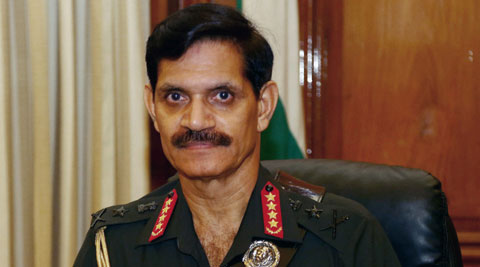
NEW DELHI: Indian Army Chief General Dalbir Singh Suhag is now headed for a four-day visit to Japan in the backdrop of the two countries steadily bolstering their bilateral strategic partnership with an eye on China.
Interestingly, Gen Suhag's visit coincides with the arrival of a top Chinese military delegation led by General Fan Changlong, who as vice-chairman of the all-powerful Central Military Commission is the highest-ranking general in his country, in New Delhi on Sunday, as was reported by TOI last week.
While the main meeting between the Indian and Chinese delegations will be held on Monday, Gen Suhag held talks with the People's Liberation Army team on Sunday afternoon before his slated departure for Japan later in the day.
All this comes soon after Japanese warships took part in the annual India-US Malabar naval wargames in the Bay of Bengal in October, which riled China to no end. Earlier this month, India also send a message to China to desist from using strong-arm tactics to unilaterally change the status-quo in South China Sea, where Beijing is embroiled in territorial disputes with countries like Philippines, Taiwan, Vietnam, Malaysia and Brunei. Similarly, Japan is locked in a dispute with China over the Senkaku islands in the East China Sea.
India, too, is worried about China's growing assertiveness in the Asia-Pacific region, and has stepped up its strategic and military cooperation with all these countries over the last several years.
During the India-Japan defence dialogue in Tokyo in March, Japanese PM Shinzo Abe — who shares a good personal rapport with his Indian counterpart Narendra Modi — told defence minister Manohar Parrikar that "a strong" India-Japan partnership was not only in the "national interest of the two" but also "important for peace and security in the region".
During his visit from November 16 to 19, Gen Suhag will meet Japanese defence minister General Nakatani, chief of staff Admiral Katsutoshi Kawano and his counterpart General Kiyofumi Iwata, among others.
India-Japan defence cooperation, with a strong focus on maritime security, has emerged as a key component of their bilateral strategic partnership since 2012. "Both sides want to further enhance cooperation through regular high-level exchanges, joint exercises and the production of defence equipment," said an official.
Though India is keen on "a strong partnership" in defence equipment and technology with Japan, it will take a while for it to become a concrete reality. With no experience in hawking its defence hardware, Japan will find it tough to compete with Russia, France, Germany and others in the race to take part in India's proposed project to domestically build six diesel-electric stealth submarines for upwards of Rs 70,000 crore.
Similarly, India's proposed purchase of at least 12 Japanese US-2i amphibious aircraft for the Navy for around $1.3 billion - the Coast Guard also wants five such planes - is still nowhere near being finalised. The problem with this project is that it will be economically and technically unviable to make only 17 such planes under the Modi government's "Make in India" policy.